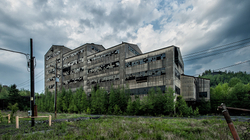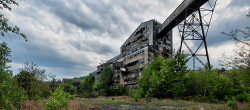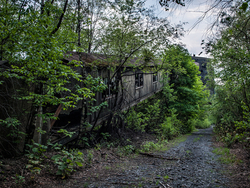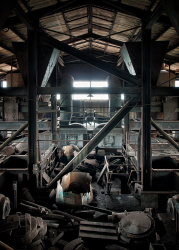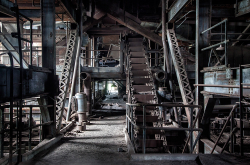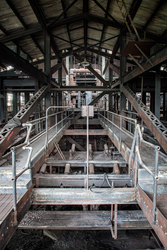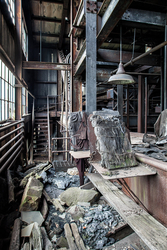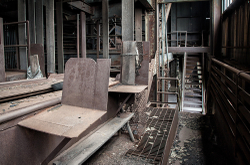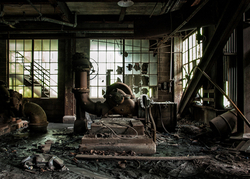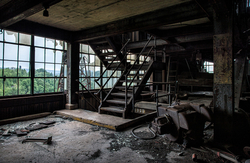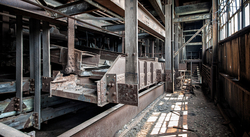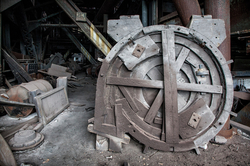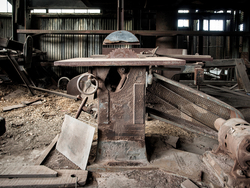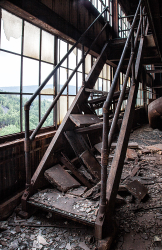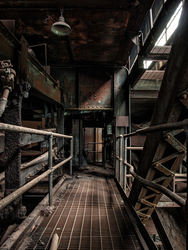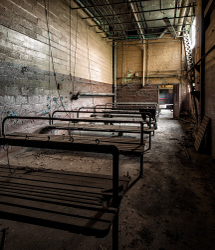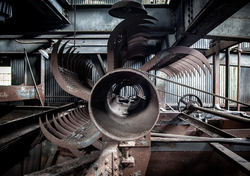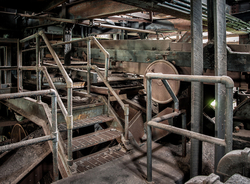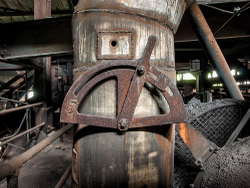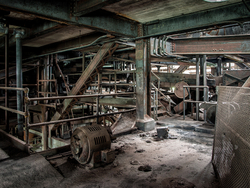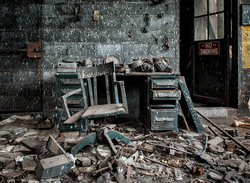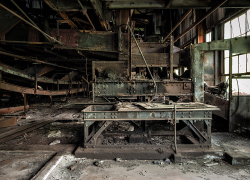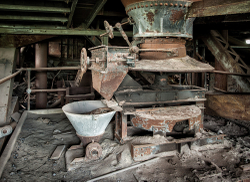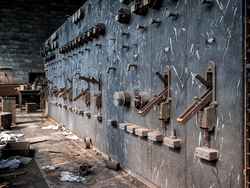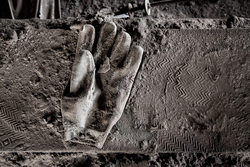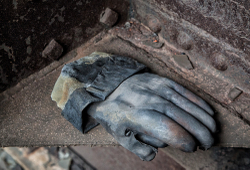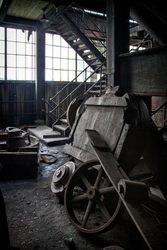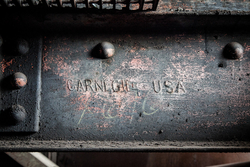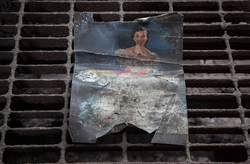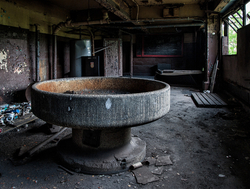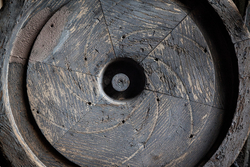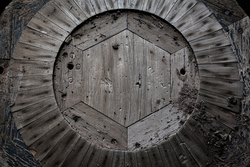St. Nicholas Breaker
Updated April 2018 | By Matthew Christopher
The St. Nicholas Coal Breaker, formerly located in Mahanoy City, PA, was once the largest coal breaker in the world, and was the last of its kind in the state. According to an article in the Morning Call, "Invented in the 1840s, breakers transformed large, hard-to-ignite chunks of raw anthracite into a variety of smaller sizes suitable for smelting iron, propelling a locomotive, running a machine or heating a building. A conveyor carried raw coal from the top floor through a variety of crushing devices and screens to the bottom, where the finished product — given names like egg, stove, chestnut and pea, according to size — was loaded onto rail cars and taken to cities like New York, Philadelphia and Baltimore."
The St. Nicholas Breaker could process 12,500 tons of coal a day, and employed hundreds of workers including young "breaker boys" who sorted the sharp slate and bone from the raw anthracite at the top of the breaker; according to a worker at the No. 9 Coal Mine Museum in Lansford, "if they still had all of their fingers by the time they were a teenager, they were good at their job." Naming the plant after St. Nicholas, who supposedly brought three boys back to life after they had been killed by a butcher who planned to pickle them and sell them as ham, was perhaps not terribly fitting.
When the breaker was built in 1931 using over 3,800 tons of steel, it displaced the entire town of Suffolk. In operation is was described as sounding like thunder; when entering the rusting remains the silence (and coal dust) is suffocating. It was hard to imagine it as a place of noise and action, and the oddness of being in such a massive piece of machinery was striking. It's gone now: it closed in 1965 and was finally destroyed by its owner, the Reading Anthracite Company, in March 2018. Only the echoes remain.
Video by Frank Derrick
To view more of this site click on an image in the gallery below; use arrow keys to navigate.
The St. Nicholas Coal Breaker, formerly located in Mahanoy City, PA, was once the largest coal breaker in the world, and was the last of its kind in the state. According to an article in the Morning Call, "Invented in the 1840s, breakers transformed large, hard-to-ignite chunks of raw anthracite into a variety of smaller sizes suitable for smelting iron, propelling a locomotive, running a machine or heating a building. A conveyor carried raw coal from the top floor through a variety of crushing devices and screens to the bottom, where the finished product — given names like egg, stove, chestnut and pea, according to size — was loaded onto rail cars and taken to cities like New York, Philadelphia and Baltimore."
The St. Nicholas Breaker could process 12,500 tons of coal a day, and employed hundreds of workers including young "breaker boys" who sorted the sharp slate and bone from the raw anthracite at the top of the breaker; according to a worker at the No. 9 Coal Mine Museum in Lansford, "if they still had all of their fingers by the time they were a teenager, they were good at their job." Naming the plant after St. Nicholas, who supposedly brought three boys back to life after they had been killed by a butcher who planned to pickle them and sell them as ham, was perhaps not terribly fitting.
When the breaker was built in 1931 using over 3,800 tons of steel, it displaced the entire town of Suffolk. In operation is was described as sounding like thunder; when entering the rusting remains the silence (and coal dust) is suffocating. It was hard to imagine it as a place of noise and action, and the oddness of being in such a massive piece of machinery was striking. It's gone now: it closed in 1965 and was finally destroyed by its owner, the Reading Anthracite Company, in March 2018. Only the echoes remain.
Video by Frank Derrick
Join us on Patreon for high quality photos, exclusive content, and book previews
Read the Abandoned America book series: Buy it on Amazon or get signed copies here
Subscribe to our mailing list for news and updates
